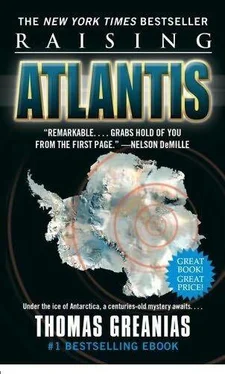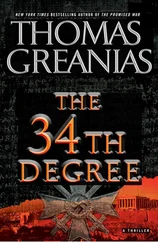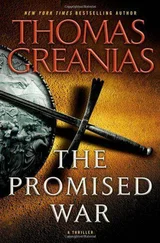What a sorry way to die, he thought, staring at the flare in his gloved fist. You survive an airplane crash only to turn into a Popsicle. God, how he hated the cold. It was all he ever knew as a child, and to die in the snow was the last way he wanted to go. It would signify he had not traveled as far from home as he once dreamed. And he would never reconcile with his father.
How’s that for irony? he thought as he scanned the temperature reading on his multi-sensor watch. The digital thermometer displayed -25° F. Then he took a closer look and realized he had missed a digit. - 125° F.
Conrad slumped to the floor with the rest of the crew, his eyelids starting to get heavy. He fought to stay awake, but it was a losing battle, and he had begun to drift off into unconsciousness when suddenly the plane started to shake and he thought he heard a dog barking.
He opened his eyes, dragged himself over to his backpack on the floor, and managed to sling it over his shoulder. He then fumbled for his flare, his fingers working slowly, slid down through a hole in the fuselage, and fell onto the ice.
The thud sharpened his senses.
Conrad staggered to his feet and looked across the barren ice. But there was nothing to see. If anything, the snow was coming down even harder. Then, out of the mist, a huge tractor like vehicle appeared.
It looked like one of those big Swedish Hagglunds. Its two fiberglass cabs were linked together and ran on rubber treads that left wide waffle tracks in the snow.
Conrad quickly broke his flare and started waving his hands. His arms felt heavy and he couldn’t feel the flare in his fist.
The Hagglunds plowed to a stop in front of him. The forward cabin door opened. A white Alaskan husky jumped out and ran past Conrad to the wreckage. Conrad heard clanking and saw the white boots of a large figure emerge from the Hagglunds and descend the rungs of the small ladder to the ice pack.
Conrad could tell from the towering frame and crisp, spare movements that it was his father. Stiff in a white freezer suit with charcoal under his goggles to block the snow glare, Yeats marched toward him, his powerful strides crunching deeply into the snow.
“You broke my radio blackout orders, son.” Yeats stood there like a statue, snow flying all around him. “You blew our twenty.”
“It’s good to see you, too, Dad.”
Yeats took the flare from Conrad’s hand, dropped it into the snow, and ground it under his boot. “You’ve attracted enough attention.”
A geyser of anger suddenly erupted inside Conrad. Anger at Yeats and at himself for letting his father reach out across time and pull him back into this personal frozen hell.
“Lundstrom’s dead along with half your men,” Conrad gestured with his frostbitten hand toward the plane.
Yeats spoke into his radio. “S and R teams,” Yeats barked. “See what you can salvage from the cargo hold before the storm buries us alive.”
Conrad glanced back at the wreckage and men, which would soon be forgotten under the merciless snow. Then the husky trotted out with a wristwatch in his mouth. Its face was smeared with frozen blood. Conrad felt the husky brush past his leg and looked on as it ran for the Hagglunds.
“Nimrod!” Yeats called out after the dog. But the husky was already scratching at the door of the forward cab.
“Nimrod’s the only one here with half a brain.” Conrad marched toward the Hagglunds. But when he reached the forward cab and grasped the door handle, Yeats blocked it with a stiff arm.
“Where do you think you’re going?” Yeats demanded.
Conrad cracked open the icy cab door, letting Nimrod jump into the warm cab first. “Don’t piss in your pants, Dad. In this cold, something might fall off.”
Conrad glanced at his bandaged hand as he followed Yeats down an insulated corridor inside the mysterious Ice Base Orion. A medic in the infirmary had dressed the hand as best he could. But now that it was thawing, it hurt like the living daylights.
Classical music was piped in through hidden speakers. Only the thin polystyrene walls separated them from the furious storm raging outside. Eight inches and what sounded like the faint strains of Symphony No. 25 in G Minor.
“Mozart,” Yeats said. “Some bullshit experiments proved that classical music has a positive effect on the cardiovascular system. A decade from now it will be blues or rap or whatever turns on the geeks.”
They passed through another air lock into a new module and Conrad felt a weird sensation of vertigo. The upper half of the module looked exactly like the bottom half. And the ceiling area was packed with instrument panels, circuit breakers, temperature dials, and dosimeter gauges. The panel clocks, like Yeats’s wristwatch, were set on central time-Houston.
Then Conrad noted the NASA markings all around and suddenly realized that Ice Base Orion was never intended for use on Earth. It must have been designed to be an orbiting space station or a colony on one of the polar caps of Mars, where the ice would be tapped for water and life support.
“What the hell is this place you’ve built down here?” Conrad asked.
“Welcome to the most inaccessible human settlement on the planet, son.”
They turned a corner, and Conrad followed Yeats down another long corridor. Conrad could hear a low hum beneath the music as they walked. And every now and then, a shudder seemed to pass through the entire base like a train had just rumbled by.
“We’ve got a command center, biodome, mobile servicing center, an astrophysics lab, an observatory, and modules for materials processing, remote sensing, and medical research,” Yeats said.
“You forgot the drill rig,” Conrad said. “That would explain the shaking.”
Yeats pretended he hadn’t heard him and pointed in the opposite direction. “The brig is that way.”
This whole base is a brig, thought Conrad as he looked down a tunnel toward a sealed-off air lock. “Where is anybody going to go that you need to lock him up?”
“The harsh conditions here are known to send men over the edge,” Yeats said.
Conrad looked at his father. “Is that what happened to you?”
Yeats stopped and turned around abruptly in front of a door marked PERSONNEL ONLY. As if anybody else was around to violate security procedures.
“Follow me through this door, son,” said Yeats, his hand resting on the release bar, “and you just might go over the edge yourself.”
Standing on a platform inside the cavernous laboratory was a pyramid about ten feet tall. A solid piece of rock with an almost reddish glow, it was marked by four grooves or rings around its sides. The rings began halfway up the slopes and grew closer together toward the top.
Conrad let out a low whistle.
“Pentagon satellites picked up a dark anomaly beneath the ice shortly after the last big quake some weeks ago,” Yeats said. “We put a survey team on the ground, but they couldn’t pick up anything solid. The anomaly appeared to be invisible to radio-echo surveys. That’s when we started drilling. We hit the stone a mile beneath the ice cap. Clearly it’s not a natural rock formation.”
No it wasn’t, Conrad thought with growing excitement as he studied the stone. The U.S. State Department’s official position was that no human had set foot on Antarctica before the nineteenth century. Yet this rock was at least as old as the ice that covered it-twelve thousand years. That strongly suggested the remains of a civilization twice as old as Sumer, the oldest known on Earth.
Conrad ran his hand across the smooth face of the stone and inserted a finger into one of the strange grooves. This find could be it, he thought, nearly trembling now, the first evidence of the Mother Culture he had been seeking his entire life.
Читать дальше












